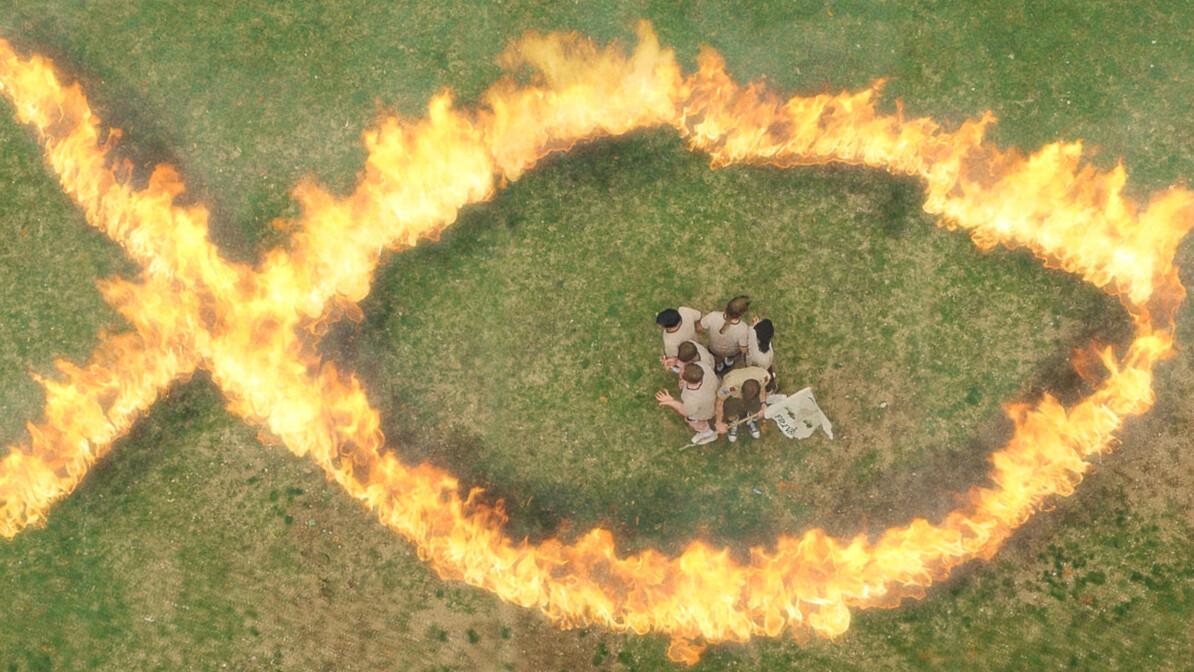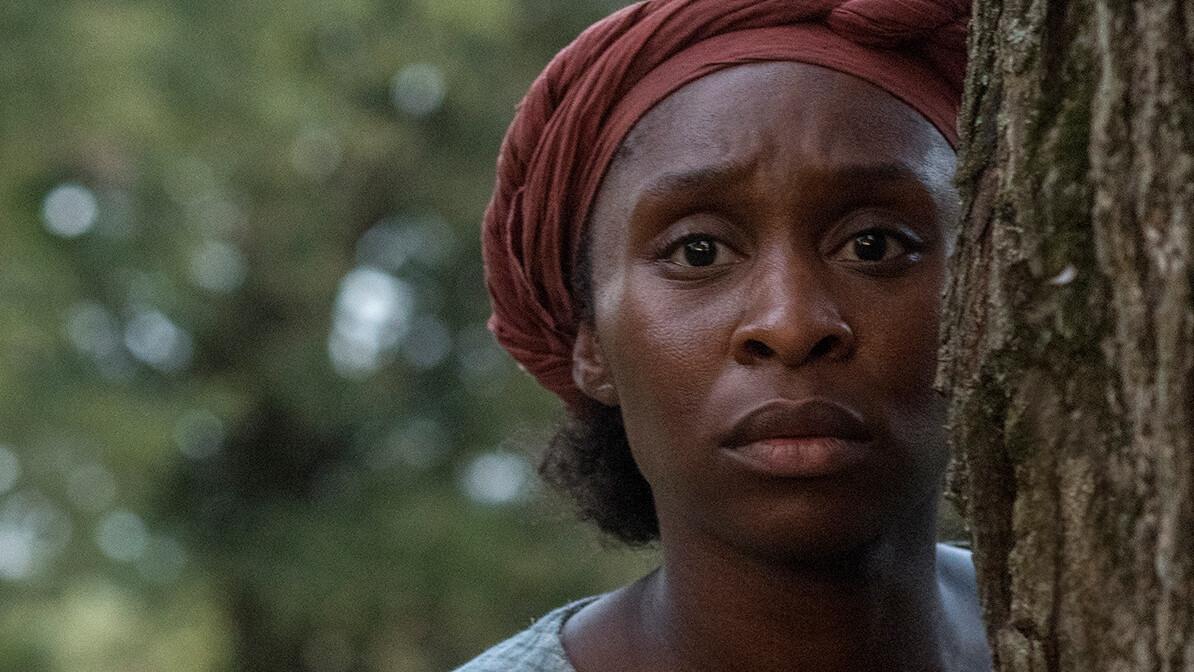- Home
- Entertainment
- Evan Koons and Finding Unity in Camp Manna (Part 1)

Evan Koons and Finding Unity in Camp Manna (Part 1)
John Farrell: Could you please tell me a little bit about Camp Manna?
Evan Koons: Sure. Camp Manna is really the pet project of Eric Johnson and Eric Machiela at Gorilla or GRLA. It sort of stems from their upbringing in highly evangelical life. Eric was a homeschool kid and Eric Johnson was a homeschool kid. Eric Machiela was also raised in west Michigan as a Reformed Christian. This was their experiences sort of turned up to 11 and put down on paper as a way to just sort of look at their upbringing.
It’s the story of a quote-unquote unbeliever, Ian Fletcher, a Floridian whose parents die. He gets sent to live with his aunt and uncle in Michigan. They send him to a Christian summer camp up north to make friends and what ends up happening is he becomes the pet project for Bradley Summers, my character.
He gets put in his cabin and Bradley wants to win the God Games and Ian just might be the ticket. So, that’s sort of the story. The camp, of course, is run by none other than Gary Busey or Cujo, who in every way embodies what the movie is – wacky, zany, tender, and, at times, meaningful.
JF: And there’s another counselor that is your character’s archnemesis. Correct?
Evan: Correct. That’s played by Jimmy Tatro. That’s Clayton Vance. Clayton is just the epitome of cool and he saves everybody. And when he saves them, he gets tattoos on his arm for their soul.
Everybody wants to be like him. Everybody wants to be in his cabin. And my character, Bradley, is pretty jealous of this kid and really wants to embody what Clayton is, but just can’t quite get there.
In their own way, they’re both just a little bit off.
A Story of Friendship
JF: What is the overall message you hope viewers take from the movie?
Evan: I think the overall message is that this movie is the story of friendship and community. That’s what it is for me. It’s about people from all different walks of life finding unity and becoming people who work together for a common good or goal. But ultimately, I think it’s just a story of friendship and forgiveness.
JF: In your opinion, is Camp Manna a faith-based film in the traditional sense?
Evan: No, it’s not a traditional faith-based film just like Happy Gilmore isn’t a movie about golf. It’s a comedy and it’s a satire of how so many of us grew up. Not poking fun, but more just like looking at the funny behaviors and some of the things that we sort of sanctioned as holy. And now we’re like, “Really, that’s interesting that that’s what we considered holy.”
But it’s not punching down at or making fun of. It’s more just like looking at our behaviors and learning to laugh at ourselves and some of the things that we thought were maybe appropriate or just the way we decided to interpret life as we knew it. Right?
What Is It About Church Camp?
JF: I went to two different church camps growing up, so it was somewhat nostalgic for me. There were a lot of similarities to what I experienced, but also a lot of differences. So, I was wondering, in your opinion, how does Camp Manna represent the church camp experience?
Evan: I think when you watch this movie, you’ll see the archetypes of the people you met at camp. There’s the cool kids and the not-cool kids. There’s the puny kids and then there’s the jocks. There’s all these people vying for attention or authority or some sort of power struggle. I think that’s going on in any community, but definitely in the subculture of Christian camps.
I remember I went to a Christian camp. I was raised Christian Reform and we’re like the frozen chosen, right? There’s no bells or whistles. It’s all academic and there’s catechisms and you’re studying how to be a better Christian. So, my camp experience was more like, “We’re going to do bow and arrow.” It wasn’t these God-themed things. It was more like, “Here’s nature and nature is made by God.”
There were the kids who were awesome at tetherball. If you rocked tetherball, you were going to get a girlfriend along the way, or you were going to be one of the cool kids who got to tell the other kids what to do. I was not good at tetherball. In fact, I was horrible at tetherball, and I cried the whole time at camp trying to fake appendicitis to get out of it. And I didn’t go to the bathroom for the whole week because I was so scared by the bathrooms. It was a horrible experience.
The stuff that’s in the movie is blended. A lot of the stuff they did in the movie, we actually stole from Christian summer camps. There is such thing as biblically themed Putt-Putt, which is wild to me. Capture the Cross we made up. We are taking the magnifying glass to Christian culture, especially in that evangelical western American sort of sense that takes secular things from culture and then puts Jesus over top of them to make them more palatable to the community.
So, they say, “Capture the Flag,” and they’re like we’ll take away flags and we’ll make crosses out of it. Or we’ll do a Putt-Putt, which is a completely fine and wonderful gift to children everywhere but we’ll put Jesus on it so that somehow makes it ten times better. And you’re like, “That’s it? Why didn’t we do that? Why couldn’t we just play Putt-Putt?”
JF: There’s nothing bad or sinister about an innocent game of Putt-Putt.
Evan: Right. It’s more like how I behave when I play Putt-Putt that actually makes it sinister.
That’s the sort of things we were looking at and really having fun with and saying that’s fun behavior or that was a behavior worth commenting on. It was about looking back at those times and just feeling a sense of connectivity to that time and sort of relishing the moments of our childhood experiences.
JF: That was one of the things I thought was really cool about the movie – the presence of the God Games and the seemingly normal games turned biblical. There was a pie-eating contest that you all posed for at the beginning to represent the Last Supper, which I thought was hysterical. I was wondering if you could talk a little more about the God Games and the different competitions that were based on different parts of the Bible.
Evan: There’s the Ben Hur chariot race. What Christian story isn’t complete without some reference to Ben Hur or the Romans and that difficult time in Rome? So, there was that.
We had David and Goliath. It’s our own take on the marksmanship award. But we made a David and Goliath and you had to slew the giant, which is sort of fun. And that sort of fit in with who Mo’s character was or could be, having grown up on the Serengeti or something. Whatever his backstory is.
Then you have the Ten Commandments and fleeing from Egypt. So, you’re trying to escape Pharaoh with the Ten Commandments, but you’re getting shot at by Gary Busey with paintballs. So, we did that.
In one of [the competitions], Rammel was climbing through the mud with a backpack on filled with Bibles. That was always one of the big stories you heard in evangelical circles. People smuggling Bibles in here and there, and their life is on the line. We heard those stories a lot and you heard harrowing escape stories.
You also heard stories of end times in Revelation and people’s interpretations of how that was going to all go down. I thought it was really funny like, “Why don’t we take the kids away from the parents and tell them about the world ending and see how that turns out.” You’re like, “That’s terrifying. Why would you do that to a child?” Anyway, I digress. I’m all over the place.
Trending Now
Sign up today for your Inspiration Today Daily Newsletter
Supercharge your faith and ignite your spirit. Find hope in God’s word. Receive your Inspiration Today newsletter now!
John Farrell
John Farrell serves as the Digital Content Manager at Inspiration Ministries, where he oversees the planning, organization, and management of website content to support the ministry's global digital outreach. With a strong background in writing and editorial strategy, John ensures that the articles, devotionals, and discipleship resources on Inspiration.org are accurate, engaging, and aligned with the ministry's mission.
John has authored more than 1,000 articles, press releases, and features for Inspiration Ministries, NASCAR, Lionel, and Speed Digital. His versatility as a writer is also showcased in his 2012 book, The Official NASCAR Trivia Book: With 1,001 Facts and Questions to Test Your Racing Knowledge.
A graduate of Appalachian State University, John brings excellence and attention to detail to the digital experience at Inspiration Ministries. He lives in Concord, N.C., with his wife and two sons.
Related Articles
March 10, 2025
Finding Total Victory on the Road to Championship
I have been playing competitive golf for 55 years. Through the various stages of my life, my…
March 7, 2025
Average Joe Movie: SCOTUS, Praying Football Coach Backstory
When Coach Joe Kennedy knelt to pray at the 50-yard line after a high school football game, he had…
February 28, 2025
The Power of Story: A Muslim Journey to Hope
Storytelling is one of the oldest and most powerful ways to touch the human heart. Parents tell…
February 27, 2025
‘Harriet’ Movie: Courage, Freedom, Faith
Antebellum abolitionist Harriet Tubman had convictions and courage that helped free herself…
Next Steps To Strengthen Your Walk
Inspiration Today Newsletter
Supercharge your faith and ignite your spirit. Find hope in God’s word. Receive your Inspiration Today newsletter now!
Christian Articles
Find articles to strengthen your walk and grow your faith. We have a wide range of topics and authors for you.
Submit A Prayer Request
We are here for you. Simply click on the button below to reach us by form, email or phone. Together we will lift our hearts and voices with you in prayer.





